Filter by
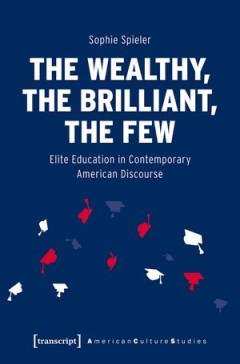
The Wealthy, the Brilliant, the Few: Elite Education in Contemporary American…
How does the US make sense of its elite educational system, given that it seems to be at odds with core American values, such as equality of opportunity or upward mobility? Sophie Spieler explores scholarly and journalistic investigations, self-representational texts, and fictional narratives revolving around the Ivy League and its peers in order to understand elite education and its peculiar p…
- Edition
- -
- ISBN/ISSN
- 9783839457290
- Collation
- -
- Series Title
- -
- Call Number
- 973 SPI w
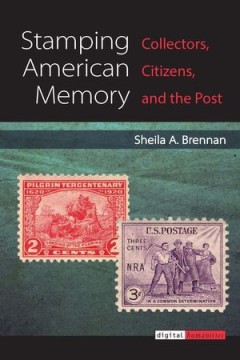
Stamping American Memory : Collectors, Citizens, and the Post
Winner of the University of Michigan Press / Humanities, Arts, Science, and Technology Alliance and Collaboratory (HASTAC) Prize for Notable Work in the Digital Humanities In the age of digital communications, it can be difficult to imagine a time when the meaning and imagery of stamps was politically volatile. While millions of Americans collected stamps from the 1880s to the 1940s, Stampi…
- Edition
- -
- ISBN/ISSN
- 9780472900848
- Collation
- -
- Series Title
- -
- Call Number
- 900 BRE s
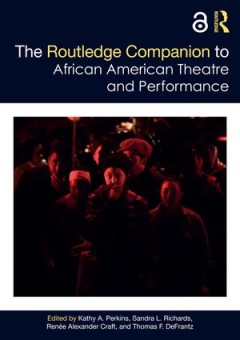
The Routledge Companion to African American Theatre and Performance
The Routledge Companion to African American Theatre and Performance is an outstanding collection of specially written essays that charts the emergence, development, and diversity of African American Theatre and Performance—from the nineteenth-century African Grove Theatre to Afrofuturism. Alongside chapters from scholars are contributions from theatre makers, including producers, theatre mana…
- Edition
- 1
- ISBN/ISSN
- 9781351751445
- Collation
- -
- Series Title
- -
- Call Number
- 812 ROU r
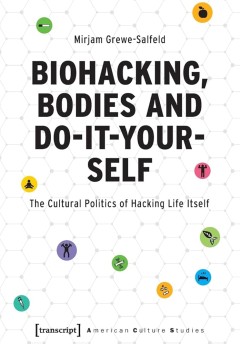
Biohacking, Bodies and Do-It-Yourself : The Cultural Politics of Hacking Life…
From self-help books and nootropics, to self-tracking and home health tests, to the tinkering with technology and biological particles - biohacking brings biology, medicine, and the material foundation of life into the sphere of »do-it-yourself«. This trend has the potential to fundamentally change people's relationship with their bodies and biology but it also creates new cultural narratives…
- Edition
- -
- ISBN/ISSN
- 9783839460047
- Collation
- 314 halaman
- Series Title
- American Culture Studies, 36
- Call Number
- 302 GRE b
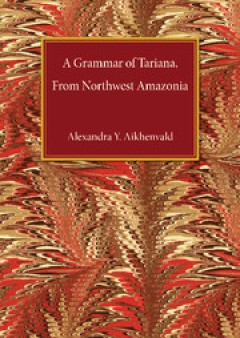
A Grammar of Tariana, from Northwest Amazonia
This is a comprehensive reference grammar of Tariana, an endangered Arawak language from a remote region in the northwest Amazonian jungle. Its speakers traditionally marry someone speaking a different language, and as a result most people are fluent in five or six languages. Because of this rampant multilingualism, Tariana combines a number of features inherited from the protolanguage with pro…
- Edition
- -
- ISBN/ISSN
- 9781107050952
- Collation
- -
- Series Title
- -
- Call Number
- -

A Government Out of Sight The Mystery of National Authority in Nineteenth-Ce…
While it is obvious that America's state and local governments were consistently active during the nineteenth century, a period dominated by laissez-faire, political historians of twentieth-century America have assumed that the national government did very little during this period. A Government Out of Sight challenges this premise, chronicling the ways in which the national government interven…
- Edition
- -
- ISBN/ISSN
- 9780511576324
- Collation
- -
- Series Title
- -
- Call Number
- -
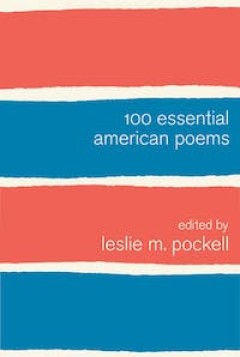
100 essential American poems
The understanding of the United States—its history, its traditions, even the distinctly American voice—is largely determined by literature. Gathered in this rewarding and thought-provoking book are poems that have been essential components of our common American culture, from the earliest days of the nation through canonic works of the nineteenth century and up to the present day. 100 Essen…
- Edition
- 1
- ISBN/ISSN
- 9780312623975
- Collation
- xv, 288 pages ; 22 cm
- Series Title
- -
- Call Number
- 811 ONE
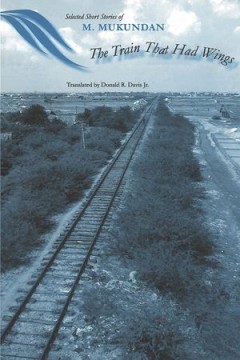
The Train That Had Wings
The Train That Had Wings presents modern life in Kerala in terms of a shared but tragically compromised humanity. Mukundan dares to look beneath the routines and facades of everyday life in order to probe depth of sin, greed, and hypocrisy but also to rediscover what brings joy and hope.Sixteen short story translations and a critical introduction, offering examples of Mukundan's realistic, exis…
- Edition
- -
- ISBN/ISSN
- 9780472901678
- Collation
- -
- Series Title
- -
- Call Number
- 813 MUK t
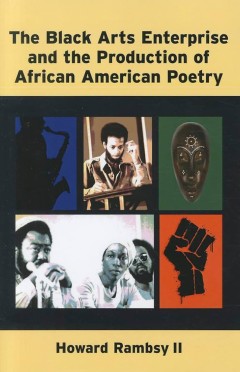
The Black Arts Enterprise and the Production of African American Poetry
The outpouring of creative expression known as the Black Arts Movement of the 1960s and 1970s spawned a burgeoning number of black-owned cultural outlets, including publishing houses, performance spaces, and galleries. Central to the movement were its poets, who in concert with editors, visual artists, critics, and fellow writers published a wide range of black verse and advanced new theories a…
- Edition
- -
- ISBN/ISSN
- 9780472117338
- Collation
- 198 halaman
- Series Title
- -
- Call Number
- 700 RAM b
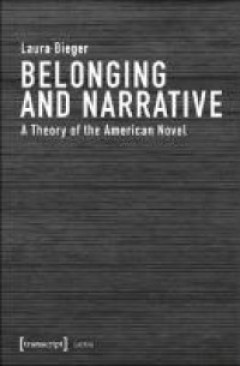
Belonging and Narrative : A Theory of the American Novel
Why did the novel become so popular in the past three centuries, and how did the American novel contribute to this trend? As a key provider of the narrative frames and formulas needed by modern individuals to give meaning and mooring to their lives. Drawing on phenomenological hermeneutics, human geography and social psychology, Laura Bieger contends that belonging is not a given; it is continu…
- Edition
- -
- ISBN/ISSN
- 9783839446003
- Collation
- -
- Series Title
- -
- Call Number
- 800 BIE b
 Computer Science, Information & General Works
Computer Science, Information & General Works  Philosophy & Psychology
Philosophy & Psychology  Religion
Religion  Social Sciences
Social Sciences  Language
Language  Pure Science
Pure Science  Applied Sciences
Applied Sciences  Art & Recreation
Art & Recreation  Literature
Literature  History & Geography
History & Geography